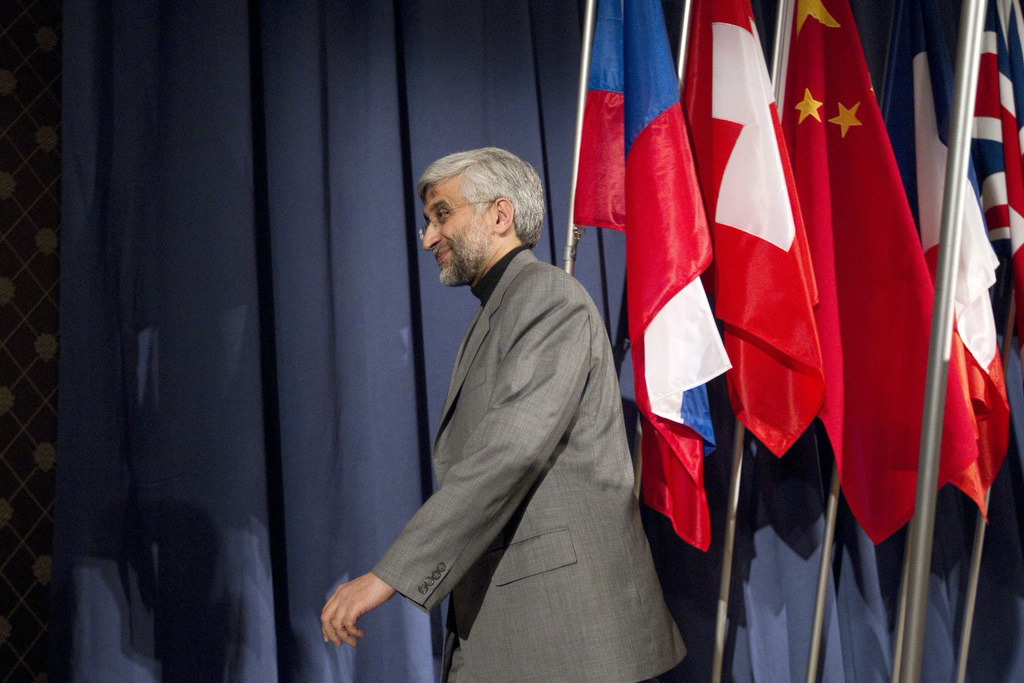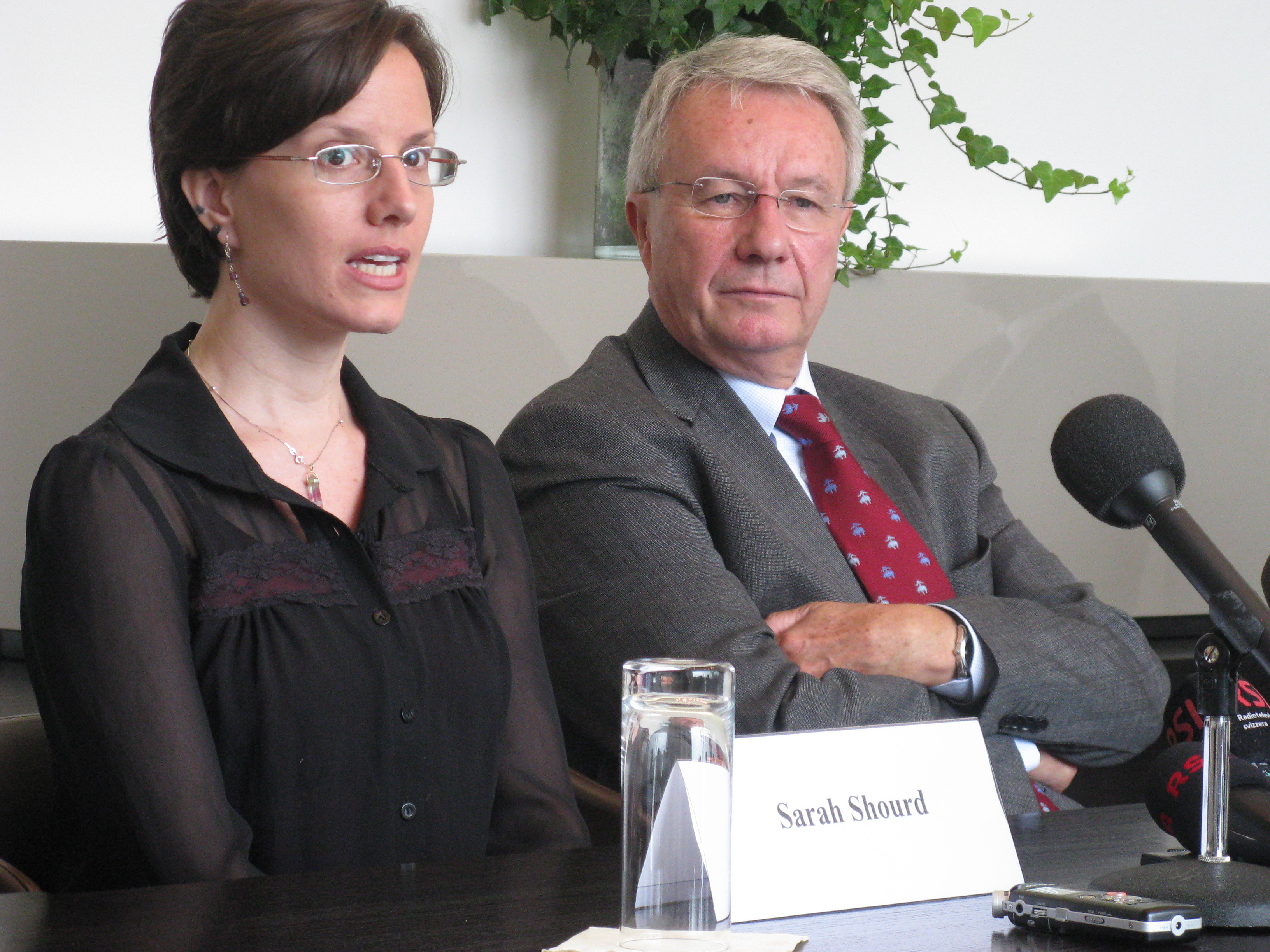Swiss-Iranian relations take a new track

Switzerland is to step up its sanctions against Iran, aligning its position with that of the United States, the European Union and a number of other countries.
The sanctions are aimed at forcing Iran to comply with United Nations resolutions designed to ensure the peaceful nature of its nuclear programme.
In explaining the move, announced at a news conference on Wednesday, Swiss Economics Minister Johann Schneider-Amman said the measures had been taken to make sure that Switzerland is not used to bypass the additional sanctions imposed by its trading partners.
However, he admitted that it could complicate Switzerland’s policy of providing “good offices” to countries in conflict. As far as Iran is concerned, Switzerland has represented the interests of the United States in Tehran since 1980. The US broke off relations with Iran in 1979 in the wake of the Islamic revolution.
In an interview to the Swiss Basler Zeitung newspaper at the end of 2010, US ambassador Donald Beyer called on Switzerland to take a “tougher stance” on Iran, although he admitted that Bern was in a “difficult position”. But he added that the fact that Switzerland is a neutral mediator made it all the more important for it to back the sanctions.
“That would give a clear signal to Iran,” he explained.
A model friend?
Swiss sanctions do indeed appear to have a symbolic importance beyond the economic as far as Iran is concerned. The Neue Zürcher Zeitung pointed out on Thursday that the new measures will make it harder for Tehran to “present Switzerland as its model friend”.
This was a reference to widely published claims in the Iranian media earlier in January that Swiss Secretary of State Peter Maurer had told Iran’s acting foreign minister Ali Ahani that Switzerland does not accept “the logic of sanctions against Iran”.
The Swiss foreign ministry confirmed that Maurer had visited Tehran for “official working talks”, but would not confirm his alleged comments.
A Swiss bridge
Mohammad-Reza Djalili, a political scientist specialising in the Middle East and Central Asia, and professor emeritus at the Graduate Institute in Geneva, told swissinfo.ch that he didn’t expect a strong reaction from Iran to the new Swiss sanctions.
“I don’t think Iran would go so far as to create a sort of crisis with Switzerland,” he said. “That wouldn’t be in its interest, precisely because it’s been subjected to sanctions from the international community and it is very isolated.”
“Switzerland is a means for Iran to have access to international diplomacy, to the international scene.”
He pointed out that the fact that Switzerland is home to so many international organisations gives it special importance, and means that its particular role cannot be replaced by another state. But he added that Iran needs “several bridges”, and other countries – Turkey being one example – can play other roles.
A weak link
Mark Hibbs, senior associate in the Nuclear Policy Program of the Carnegie Endowment for International Peace – a foreign policy think tank – explained to swissinfo.ch that the additional sanctions imposed by the United States can only work if Iran’s key trading partners are also involved.
“I don’t think there is any attempt to short-circuit Switzerland’s interests in Iran, and certainly not to marginalise Switzerland at all, but to try to create a fabric of key international players, one of which is Switzerland, to send a message to the Iranians that … the focus has to remain on problems that recur because the Iranians are out of compliance [with the demands of the United Nations].”
Andrea Bianchi, professor of international law at the Graduate Institute in Geneva told swissinfo.ch that until now Switzerland has been a weak link in the sanctions net.
“This made it possible for commercial transactions to take place where the international community was trying to impose sanctions,” he said.
However, Economics Minister Johann Schneider-Amman assured journalists that there were no indications that this had actually happened.
Protecting Swiss business
The government has also made it clear that another reason for tightening up sanctions was to clarify the situation for Swiss businesses.
Erwin Bollinger, acting head of bilateral economic relations at the State Secretariat for Economic Affairs explained the problem to swissinfo.ch.
“Exporters were worried that the government could tighten up sanctions, but they didn’t know when or how, and held back with their Iranian partners, while many other exporters had already aligned themselves with the EU sanctions,” he said in an email.
Switzerland first imposed sanctions against Iran in August 2010, following a decision by the UN Security Council. The tighter measures came into force in the EU at the end of October.
These new measures include far-reaching bans on the supply of goods and technology that could be used in Iran’s nuclear programme, and extend the prohibition on the sale of armaments. Restrictions have also been placed on the export of some goods that can be used in the Iranian oil and gas industry, and a number of steps have been taken to tighten up financial transactions.
The new measures came into force on January 20, the day after they were announced.
Asked for the Iranian reaction, Hossein Mohammadi, first secretary at the Iranian embassy in Bern, told swissinfo.ch by mail that Switzerland was known as an “independent and neutral country.”
“Mediation and peaceful settlement of conflicts has been a main pillar of Swiss foreign policy.”
“Imposition of sanctions as a hostile act is not a solution to the world problems and has never worked effectively,” he said, adding that Iran was committed to “constructive engagement and negotiations in an equal and fair environment.”
Trade with Iran amounted to about SFr741 million ($ ) in 2010, in Switzerland’s favour.
Switzerland exported goods worth about SFr700 million, while imports were worth some SFr41 million.
The volume of trade was down by about SFr63 million in comparison with 2009.
Switzerland’s main exports are pharmaceuticals, machinery and agricultural products.
It imports mainly textiles and agricultural products.
1917: Iran opens an embassy in Bern
1919: Switzerland opens a consulate general in Tehran
1936: The consulate becomes an embassy
1979: Islamic revolution in Iran; students hold staff of US embassy hostage for 444 days. US breaks off diplomatic relations
1980: Switzerland starts representing Washington’s interests in Iran, and providing consular assistance to US citizens in Iran
2008: Swiss Foreign Minister Micheline Calmy-Rey goes to Iran to attend signing of gas agreement, sparking widespread criticism at home and abroad
August, 2010: Switzerland adopts UN-imposed sanctions against Iran after it refuses to suspend its nuclear programme
January, 2011: Switzerland agrees to step up sanctions in line with those imposed by the US, the EU and some other countries

In compliance with the JTI standards
More: SWI swissinfo.ch certified by the Journalism Trust Initiative












You can find an overview of ongoing debates with our journalists here . Please join us!
If you want to start a conversation about a topic raised in this article or want to report factual errors, email us at english@swissinfo.ch.